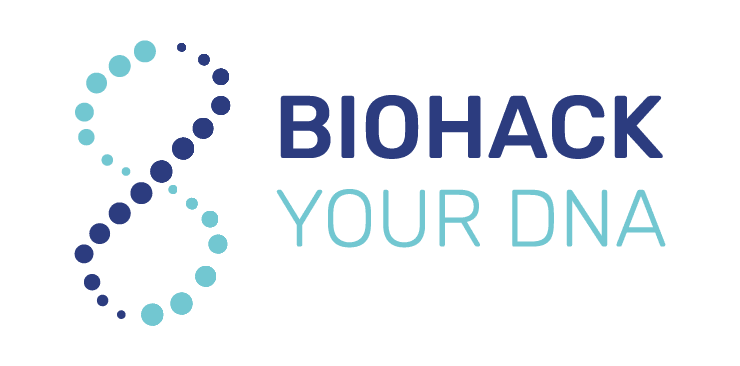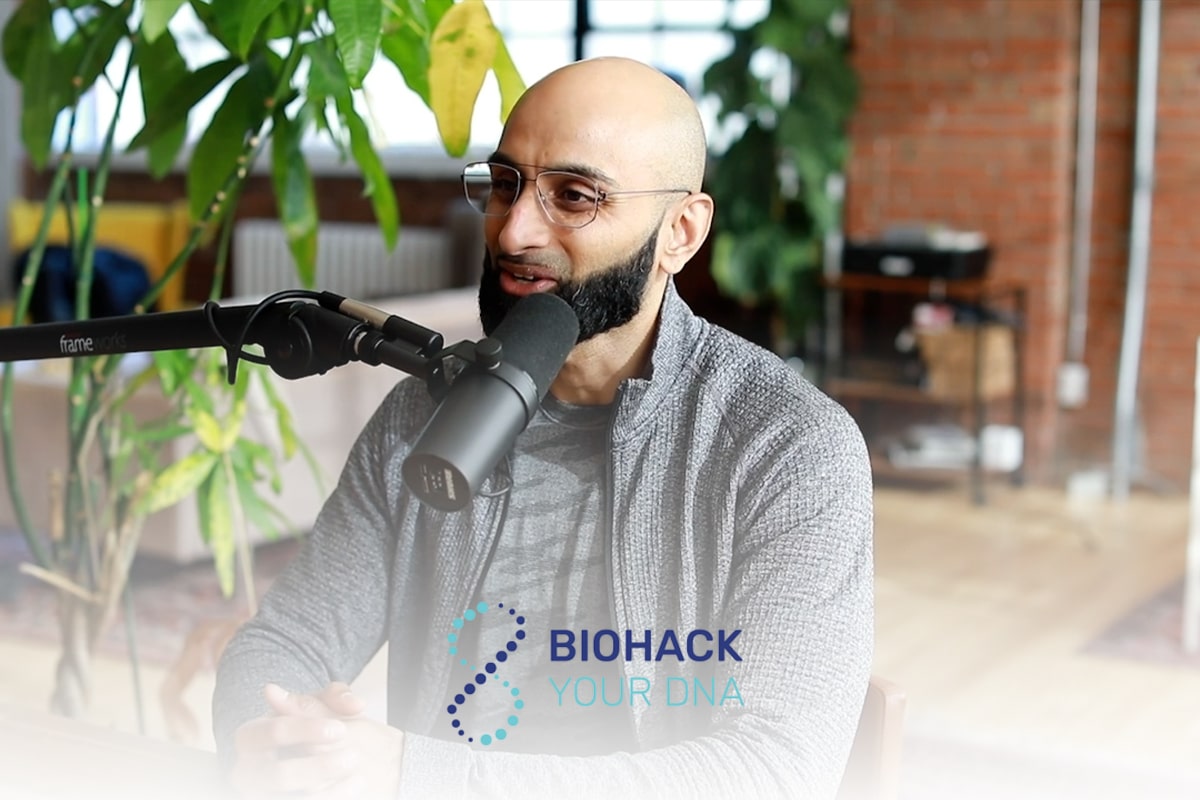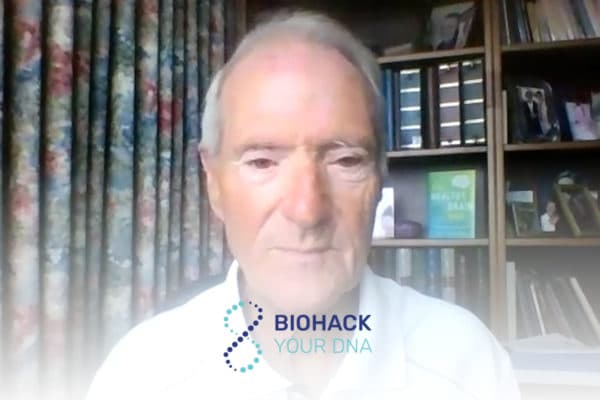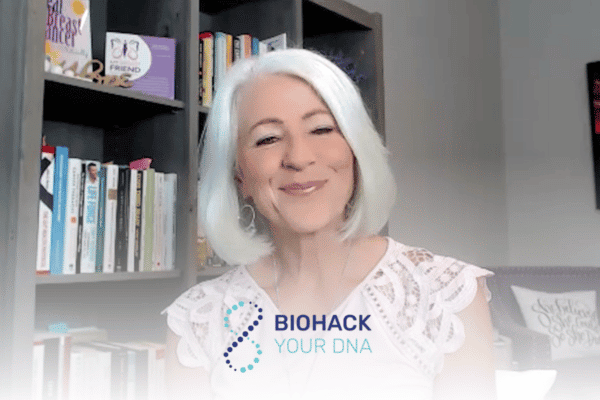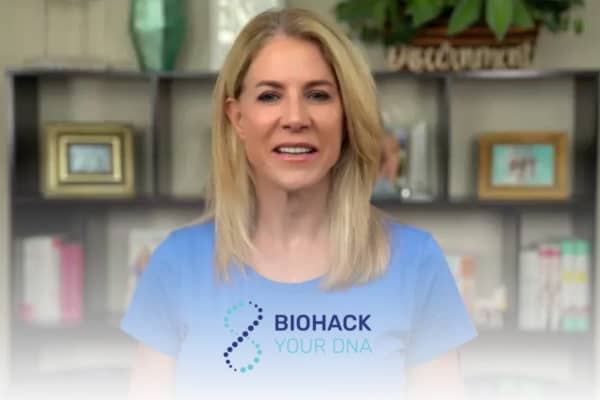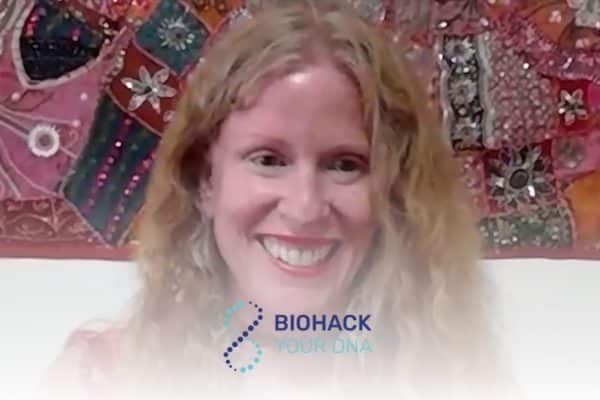Join the discussion below

Kashif Khan is the Chief Executive Officer and Founder of The DNA Company, where personalized medicine is being pioneered through unique insights into the human genome. With the largest study of its kind globally, The DNA Company has developed a functional approach to genomic interpretation overlaying environment, nutrition, and lifestyle... Read More

Sachin Patel is a father, husband, philanthropist, functional medicine practice success coach, speaker, author, breath-work facilitator, and plant medicine advocate. Sachin is convinced that “the doctor of the future is the patient” and he has committed himself to helping others raise their consciousness, activate their inner doctor, and initiate their... Read More
- How do you know if you are metabolically healthy?
- What Sachin learned after reviving the metabolic health of 1000s of patients
- 3 things you can do right now to improve your cellular health
Kashif Khan
So today we’re talking to someone about something that’s dear to all of us. We currently, in fact, I’ll tell you, last night I was scrolling through TikTok, which I recently started doing as a bad habit. And there was an ICU doctor who deals with COVID emergencies right now. And the thing that he said on there was, “The vast majority,” and these are his words, he said, “The vast majority of people that are in the ICU are metabolically unhealthy.” This are the words of the ICU doctor, he said, “They either have diabetes, they’re obese, hypertension, blood pressure issues, but metabolically, they’re already sick.” And that’s the thing that he said that we need to deal with, which we heard from the first time, last night on TikTok. But other people have been saying that for quite a while. And with us we have today Sachin Patel, who I couldn’t think of a better person to talk to about metabolic health than you and thank you for coming.
Sachin Patel
Oh, thank you, it’s such a great honor to be here.
Kashif Khan
No, it’s great, man. So first of all, for people who don’t understand what does that even mean, metabolic health? That’s not something we talk about commonly, you don’t go to the doctor and say, “I need to get my metabolic health checked, right?” Although you probably should.
Sachin Patel
Yeah.
Kashif Khan
Where do we even start?
Sachin Patel
Well, I think the best place to start with metabolic health is just looking down. And when we can see that we have either a pendulous abdomen, or a flat abdomen, that’s usually one of the first signs that we have great metabolic health. If our stomach is nice and flat, then that’s a great way to know quickly, very quickly, if we have metabolic challenges or not. Another way to know is how our brain functions. So our brain is one of our most metabolically active tissues, so if we’re starting to notice fogginess, a lack of clarity, our memories declining, our cognitive function is not where it used to be. That could be an early, early sign of metabolic dysfunction. If you’re tired, that could be a sign of metabolic dysfunction. If you don’t digest your food very well, that could lead, or could be a sign of metabolic dysfunction.
Kashif Khan
So what does that big scary word mean? When we talk about metabolic dysfunction? People like, well, I don’t mind, I don’t sleep properly, I don’t digest properly, but I’m not sick per se, right. What does that mean, if you are metabolically unhealthy, to your body?
Sachin Patel
Well means your body’s probably working a lot harder than it needs to and it’s also probably working less efficiently than it’s capable of working. So either you’re toxic with something that you don’t need and that could be stress or toxins. Or you’re deficient in something that you do need, which is enzymes, co-factors, nutrients and the right inputs, so that’s another big thing is our cells are doing exactly what they’re designed to do with the input, which is a signal that they’re receiving from the nervous system in their environment and the actual tools and resources that they have, which is the nutrients and the co-factors that they need for metabolic functions to take place.
Kashif Khan
And this is the thing, is we’re talking about health at the cellular level, right, the building block of who we are, and it’s not about this pain, this pain, this pain, if your cells are unhealthy, that’s years before the symptom starts and that’s what you’re drilling now down into, and we don’t necessarily need to examine under a microscope, what your cells look like, you’re saying that all these spokes are pointing to that cellular, sort of, failure.
Sachin Patel
Right and we don’t wanna just look at the cell. We wanna understand how it’s functioning. So imagine buying a car, you would never buy a car, at least maybe this day and age, you might, but you probably wouldn’t buy a car without driving it, especially a used car, you’d probably wanna drive it first to get a better sense of how well the car is functioning. If you were to take a picture of every single aspect of that car or an x-ray or a scan of that car, it wouldn’t tell you how the components synergistically are working together and if they’re doing their job as appropriately as they could.
Kashif Khan
Yeah, so it’s like looking at the muffler, looking at the rear view mirror, you can’t figure out by diagnosing those two things, how the system flows and interacts and all that stuff. So the same thing with the human body, you have not only within a system, there’s so many things going on, but there’s multiple systems that have to interact, right?
Sachin Patel
Yeah, we wanna look at the whole system, right? Because here’s the thing, metabolic function really starts and impacts our mitochondrial health. And our mitochondria is found in virtually every single cell in our body, except our red blood cells. So when our metabolic function starts to decline, our mitochondrial health is declining, which means it’s declining in every single cell tissue and organ in our body and so it’s really important for us to understand that this is a global breakdown in somebody’s health, not just something that we can put our finger on. You, can’t put your finger on somebody’s metabolic health. You really have to understand the global picture and how all these systems work together as one single system.
Kashif Khan
So when you find people and I know you have an awesome program that hundreds of people have been through and it keeps growing, growing because of the results and the net result for them, they seem to all lose weight, right? That’s like the first thing that happens, there’s all of a sudden energy up, I sleep better and where do this fat go? So why is that happening?
Sachin Patel
Well for us, the secret sauce to our program is shifting people from a sympathetic dominant state, into a parasympathetic state. It’s in that parasympathetic state that our entire body heals simultaneously. So every cell organ tissue and system in your body heals in a parasympathetic state, because now the cells are receiving the right message. In a parasympathetic state, our primary source of fuel also changes. When we’re stressed out, when we’re running around, the fast and quick source of energy is gonna be glucose and glycogen, so our body’s gonna use that primary as our energy source and then when we’re in a parasympathetic state, which we are in, when we’re at rest, or when we’re sleeping, our body’s gonna use fat as an energy source.
Most people are predominantly sympathetic dominant, either because of low grade inflammation, which keeps them sympathetic, or not as deeply parasympathetic, even while they’re sleeping, right? If somebody has chronic inflammation, a parasite, a pathogen, there’s low grade inflammation, that’s going on in their body nonstop, which leads to metabolic dysfunction. And during the day their mind and their body is go, go, go. And that signals a body to stay sympathetic dominant. And for most people, the solutions that they are offered are creating more sympathetic dominance. So a lot of times when people are given advice to lose weight, they’re told to exercise more. Well, exercise is a more sympathetic strain, creates inflammation, creates stress on the body and usually stress leading up to the exercise routine itself. Some people don’t wanna wake up at five o’clock in the morning and go exercise.
And they’re usually doing that in a environment where the lighting is very toxic, which also raises their stress response and the music is very loud and obnoxious, which further raises their stress response. So they’re putting themselves in a even more restful situation. And yes, they might see some results over a short period of time, but in the long run that tends to backfire for them. So what we did is we shifted people, and the focus of our program became how do we get you more parasympathetic? ‘Cause now we’re using the natural laws of healing in your body, in order for healing to take place. And so there’s many mechanisms through which we can get people in a more parasympathetic state.
The first one that we could do instantly for people is teaching them how to breathe correctly. Correct breathing, which we’re gonna do, whether we like it or not, right, you have no choice. You can’t say, well, I don’t like to breathe, right? You might not like to eat healthy, but you have to breathe. You have no choice. So we teach people how to breathe healthy, that’s a very low-hanging opportunity, about 50% of people are mouth breathers and because of that, they signal through each breath they take, their body to be in a sympathetic state. So by shifting to nasal breathing and being able to self-regulate the pace of our breath, we can instantly shift people into a parasympathetic state.
Kashif Khan
So that one simple shift can have an impact of that degree?
Sachin Patel
Yeah, immediately, right? So we’re really big on things that people are all already doing, instead of introducing new behaviors, let’s raise awareness around the things that you’re already doing.
Kashif Khan
What you’re already doing.
Sachin Patel
And that way you’re doing it already, so I don’t have to introduce a new behavior, I just have to raise consciousness and awareness around it. So we get people to start breathing more correctly. What that also spills into, is into the evening, so we will have our clients wear a little piece of tape over their mouth, which keeps them breathing through their nose throughout the night, which allows for better healing and nitric oxide production to take place. So breathing is number one, number two is sleep, ’cause you’re gonna sleep tonight, hopefully, whether you like it or not, so let’s raise consciousness and awareness around that. Well, one of the things that we all know, or many people know is that a good night’s sleep starts in the morning.
So getting morning sunlight, and there’s no wrong time to get sunlight, but if you can get morning sunlight for about five to 10 minutes, that’s gonna signal to your brain that, hey, it’s time for me to wake up, it’s time for me to light up the systems and fire the metabolic systems up and release certain hormones like cortisol in the morning. And then midday sun is also important, ’cause that tells our brain that hates the middle of the day and then if you can, bonus points for watching the sunset, and that, kind of is a closing a loop for our body for a circadian rhythm after the sun goes down. And this is really great, because I know the tests that we do through your organization identifies these opportunities, is lighting, lighting is so important, so underrated, so overlooked and such low-hanging opportunity for people and what I love about lighting is that it affects the entire family.
So if I change the light bulbs in somebody’s home and I go from overhead lighting, bright full spectrum lighting in the evening, to floor-based lighting, that’s closer to the red temperature, 670 nanometers, so it’s red light. That’s gonna actually decrease our cortisol and increase our melatonin production, which is gonna help us sleep much deeper. So we change our optimize breathing, we optimize sleep and we optimize lighting and within days people start feeling better, because now their body has shifted from being a glycogen and glucose-burning machine, or maybe even ketones, to more burning that excess fat that their body’s holding onto.
Now there’s a reason that our body stores that fat in the midsection, biochemically it’s because we’re causing insulin resistance, but also from a physical standpoint, we wouldn’t wanna store body fat in our arms and legs because it would make it harder for us to run away, remember the body’s always doing what’s smart, so the most efficient place to hold the weight is actually in the midsection, when we are sympathetic dominant, that’s what most people will complain about. No matter how much they exercise, no matter what they do, that waist weight never really goes down and it’s because of the chemistry and the metabolic dysfunction that’s taking place in their body so to correct that we go parasympathetic first, that’s the first step.
Kashif Khan
So someone’s gut is the signal of their stress, you can determine who’s doing well in terms of stress and funny thing is the stuff that you talked about, it’s not like you’re are saying, here’s what humans need to start doing, it’s kind of what we stopped doing. We used to do this stuff, which is why, you talk about circadian rhythm and people think of it as like, can I fly to Dubai and not get jet lag, right? But really there’s so much more, in terms of the sun is triggering your internal clock. And if you’re indoors and literally working from home, getting outta bed to the desk, not even seeing the sun, those are things your bodies needed, because your ancestors did that for thousands of years.
Sachin Patel
They had no choice.
Kashif Khan
Yeah, that’s what it was, so now all of a sudden your body is designed to do the same. And the same signals, the same things get fired, why the red light is so important, while people had fire at night, right, they didn’t have pot lights, right. And so all of a sudden you remove that to hard neural wiring and recall in terms of what, how do humans survive. Right and so it’s amazing, ’cause what you’re, it sounds so intuitive and simple when you say it, but no one’s doing it.
Sachin Patel
Yeah, right. Well, our clients were, hopefully they’re doing it as much of it as they can. And one thing you said about red light that I wanna raise awareness of is the directionality of the light also makes a difference, so a fire would be below the horizon, right, which means that light would hit the top of the retina, whereas if it’s overhead lighting, it’s hitting the bottom of the retina and our brain is wired in such a way that it knows, it uses the directionality of shadows and lighting to determine what parts of our systems that need to be stimulated. ‘Cause the only time that the sun would be perfectly overhead is midday, right? And midday is anywhere from 10:00 AM to 2:00 PM, so it’s not 12 noon, right?
Time is an artificial construct of man. And the rhythm of the sun is something that is persistently changing depending on where you live. This is why living close to the equator is so beautiful for our circadian rhythm, ’cause the days and nights are the same length, right? Another fun fact is that the average person, before we invented light bulbs, used to sleep 10 hours. And now the average person is sleeping usually less than seven, right? And those three hours are not filled with parasympathetic activities, right? People aren’t doing drum circles, they’re not meditating, they’re not doing ecstatic dance or telling stories and laughing, they’re usually doing more work. They’re doing things that drive their sympathetic dominance even further.
Kashif Khan
So how much, like in terms of the way we’re wired, how much are we supposed to be working?
Sachin Patel
That’s a great question. I think a big thing that we need to realize is that our ancestors in winter, depending on where you are, might be winter right now. And in the winter, the days get much shorter. Our ancestors would do much less work. Right, so the sun is basically, through a process called sulfation, the sun literally charges our battery. So through sulfation we create something called easy water, which is creating a charge in our body as blood is rushing through our blood vessels, literally creating a battery within us. And so when there’s less sunlight, then we are going to feel a little bit drained. Animals in nature, trees, what are they doing? They’re shedding their leaves, right? They’re going into a hibernation state. All the animals are collecting nutrients and they’re going into a hibernation state and what happens when the bear comes out of it’s hibernation state? Several weeks or months later is it’s burnt off all the body fat. Right and it’s because at a state of rest, we are primarily using fat as our energy source.
Kashif Khan
That’s amazing and we think about, everything sort of has, outside of humans, has continued the way it was meant to be, right. Because there’s no need for a bear to go on Instagram on at midnight, right? Meanwhile, the changes like here and we’re in Canada, we have a winter and there’s no vitamin D and all of a sudden, you wonder why we get so sick in the winter and the exposures and all that stuff. So yeah, it’s just taking a step back to say, what did our ancestors do? And it’s not embarrassing to say, what does sort of culturally the norm, or what was inherited by us in terms of behaviors, there was some wisdom to that. We may not know what it is, but people like you are slowly unpacking that for us to understand what that wisdom is, right?
Sachin Patel
Yeah and here’s the thing, you know it right away. So I had a gathering at my house the other day with my team members and we use this lighting in our home. So, as the sun goes down and after dinner, we wanna start raising our melatonin levels, start shutting down that cortisol response and prepare our body for sleep. And one way we do that is of course, mentally, another way we can do that is through music, another way that we can do that through lighting, another way we can do that is through temperature. So we can optimize our environment so that we’re priming our body to get sleep. Because that’s actually the most important thing that you’re gonna do that day. And in our culture, we’ve been taught that sleep is the cousin of death, it’s for weak people, right, like people oversleep and Arnold Schwarzenegger is famous for saying, “If eight hours of sleep isn’t enough, sleep faster.”
Right, so we can’t do that, right. We have created a society where we’re trying to cheat the needs of our body. Right and think of a plant. I can’t negotiate with a plant how much water I’m gonna give it, right? I can’t say, listen, I can’t beg the plant and say listen, I’m not gonna give you any sunlight. I’m gonna give you more water to try to compensate for the lack of sunlight. You would think that’s ridiculous, right and you would get laughed out of a botany presentation, if you tried to do that. However, with humans, somehow we think that that’s the right thing to do. We try to cheat what our body actually needs for it to function properly. Now, what I like to do is focus on some of the most basic things that people do. And then we can start layering on some of the innovative technology that’s available to us and innovative information that’s available to us, so that now we can supercharge their health and unlock levels that they didn’t even know exists.
Kashif Khan
And I think from people listening to all of this, if you didn’t know what metabolic health was, and you still don’t know, you get it now, because all this stuff just starts to make sense. You know that these loads that you’re putting on yourself, either putting on, or removing things you should have been doing, right. All of a sudden, the way that everything’s meant to be firing, isn’t firing that way. And your body is sort of not running in its proper rhythms and then things like diabetes start to kick in, hypertension, blood pressure, all these things that we’re saying are the comorbidities to this TikTok video I watched, right? So why is that happening then? When somebody is metabolically unhealthy, why are they more prone to some other negative load, making them sick faster?
Sachin Patel
Well, one of the things we’re learning, or we’ve actually known this for quite some time, but I feel like a lot of ancient knowledge and wisdom is being pieced together as we’re dealing with what’s going on in the world right now. So we’ve known that specifically fat around the midsection is very inflammatory, right and so when it’s triggered, it’s gonna produce far more cytokines than somebody who doesn’t have all that excessive fat. And so we want to make sure that when we get people metabolically healthy, we’re letting them know that this is reducing your risk of all cause mortality, it’s reducing your risk for cognitive decline, it’s reducing your risk for immune system dysfunction and an overfiring immune system. It’s reducing your risk for digestive issues it’s reducing your risk for hormonal imbalances, all of these things that require energy are gonna start functioning better when your metabolic system starts working the way it’s supposed to.
Kashif Khan
That’s incredible, so you’re saying that somebody who, again, two people in the same boat, one is they’re both exposed to the same thing, because this ??smart person is sort of metabolically sound, they’re just gonna be more resilient, they’re gonna be able to battle whatever that thing is better. So now what are some of the things, you mentioned sleep, you mentioned meditation, breathing, sorry, not meditation, but breathing. So is this why you hear so much nowadays, again, bringing that ancient wisdom back, that meditation and prayer is so important, is that that time you sort of give yourself the breath you need?
Sachin Patel
Well, it could be that. I think that there’s also an emotional component to it as well. This idea, and it depends on what we believe in, this idea that we could have a shoulder to lean on, or somebody or something, or a greater presence than us to offload our issues and our challenges to, I think that’s really helpful for people, knowing that there’s something with a higher omnipotent power that’s looking out for them is powerful. And I think we need, we as humans need that, right? And for some of us, it might be somebody, for some of us, it might be something, or it might be the God that we pray to. So I think that there’s definitely a spiritual, an emotional component that is layered on top of that. That also makes a big difference, because let’s put it this way, you could have two people assume all things are equal.
One person could be, they could both be breathing equally as well, but their thoughts are gonna play a role. This is where we use neuro feedback, something like HeartMath, so it’s not just about following the breathing cadence. I mean, that helps, that gets you into the physical potential to create that state, but now we need to create the emotional potential to create that synergy between the mind and the body. And so HeartMath is a great way for us to do that, where we can take somebody’s breathing, get them into a coherent state and then use their thoughts to get them even more coherent or show them how their negative thoughts are taking them out of coherence and creating that sympathetic dominance in them.
Kashif Khan
So we start off talking about a medical condition, metabolic health, and all the stuff you’re talking about are kind of the things that everybody sort of shuns on, that they shouldn’t look at because it makes them weak. Right, you’re now talking about emotion, we were talking about sleep, we were talking about breathing, everyone’s like, can you write me a prescription? Like, what do I need to do? And I wanna do that one thing and you solve my problem, which is exactly why you have the problem, ’cause you’re not willing to put in the work, right. And the work that you’re asking people to do really isn’t that significant, most of it you’re already doing. Right, but the emotional thing that’s where some people may, I think have a challenge in terms of even what is their perception, right, do they even think they have a problem there? And we’ve spoken about this before, in terms of the genetics of how the brain is wired and you and me have a similar trait, where we don’t really feel much, ’cause our dopamine levels are so low, right?
Sachin Patel
Yep.
Kashif Khan
And it doesn’t last long either for either one of us. So the way we perceive that thing, that somebody else is looking at entirely different. We may not see the problem that they’re seeing and either that causes us to push through and cause ourselves the pain, right, or maybe feel less pain, it could go either way. So how do you deal with somebody, in terms of turning on that emotional medication? Like this is something you need to do.
Sachin Patel
Yeah. I mean that’s probably the most challenging part. Right, so I always tell people, listen, your body is not the problem. It never was, it never will be. It’s how you use your body and the environment that you’re putting in, the thoughts you’re feeding your cells, that’s usually the problem, but also the opportunity. And so once we accept that our body is perfect. It’s built in the image of perfection. It’s whether you believe in evolution, we’ve evolved to become stronger and better and more effective. Now the question is what are we willing to do? So for some people that onus, that drive has to really come from them. So I was thinking about this the other day and I get excited when people get results, but I don’t get excited, because I kind of expect them. I expect if you do these things, your body, the body has never failed us, in hundred percent of our clients, when they do the work, they get results.
Because there is some variance in the outcomes, because, of course, everyone’s genetically individuals, some people have environments that they can’t fully optimize, but 100% of people move in the right direction when they’re willing to put in the work. Now for some people that there needs to be a paradigm shift or there needs to be an emotional shift that takes place that identifies why they want to do this, right. And so for a clinic like ours, or an institute like ours, people are coming to us knowing that they want to get results, so we probably have a bit of a skewed population, because they’re willing to do the work, right. The ones that are not willing to do the work are usually the ones that are not willing to accept responsibility, that they play some role in this. Or they may not realize how big that role is, that they play in their outcomes. And it might take some time, it might take an experience for people to be jaded with this idea that I’ve got this one symptom, or this one diagnosis.
So I need one pill or one, and that pill could be a supplement, or it could also be a drug, right, but there’s certain things pills can’t do for you. Right, there’s no pill for bad lighting, there’s no pill for bad breathing, there’s no pill for going bed at two o’clock in the morning, there’s no pill for negative thinking, right. So there’s certain things we have to take ownership over. I know genetically, some people are more driven than others, right, and so for some people who may not be as driven, a lot of times, what we found asking questions related to neurotransmitter function can also help clue us in, so if somebody is motivated, frustrated yet still motivated to do something about it, we’ll often look at their neurotransmitter function and we see that their dopamine levels tend to not be that high.
And if their dopamine levels are problematic, then we can support dopamine production, naturally using sunlight, using the right lighting the night before, an appropriate sleep, an appropriate protein intake. So they have all the co-factors that they need, like B6 and iron in order to make dopamine itself and of course, tyrosine as amino acid, but then for some people they may need supplemental support, so getting their dopamine levels up, make them feel a sense of reward. It makes them feel more driven, it makes them feel more focused and they feel a sense of accomplishment instead of accomplishing something and then sabotaging themselves. Right, the thing that we’ll hear over and over again is people will start and quit, they’ll start and quit. And when you see that pattern, it’s not because they’re weak, oftentimes it has to do with their executive function related to dopamine.
Kashif Khan
Yeah. They don’t get the sense of reward and it’s not motivating. And the other thing you’ve done, which isn’t done enough clinically, is you’re starting to collect more empirical data by using wearables. So you’re using, I believe it’s Oura Ring.
Sachin Patel
Yep.
Kashif Khan
Right, so how do you inform from something that was designed for tracking your sleep that somebody is or not metabolically healthy and that you’re pushing them in a certain direction?
Sachin Patel
Yeah, so we decided to hang our hat on one particular marker and that’s HRV. So HRV measures the variability between each heartbeat, the longer the variability, the more resilience there is in your nervous system. So it’s really a very noninvasive way of letting us know how resilient that person’s nervous system is. And we do see a correlation between their metabolic health and their HRV. And in fact, because HRV has to do with how resilient your nervous system is, it actually has to do with all healing. So you can find data that shows a relationship between HRV and bone health. You can find a study that shows a relationship between HRV and other systems in the body, because they all depend on a resilient, healthy, nervous system. ‘Cause a nervous system is what gives that signal of fight or flight, or being parasympathetic, so we look at that.
The Oura Ring also looks at how much deep sleep they’re getting, REM sleep they’re getting, how much they’re tossing and turning and waking up throughout the night. This also tells us whether their lighting environment is appropriated or not. It also looks at respiratory rates so we can see, are we getting their respiratory rate down? ‘Cause as we know the healthier you are metabolically, the fewer breaths you need to take. So that’s another indicator for us. Is their breathing pattern moving in the right direction? Is their HRV moving in the right direction? Is their resting heart rate moving in the right direction? Is their deep sleep and REM sleep, moving in the right direction? So there’s a lot of things that we can look at that will help us identify if this person’s moving in the right direction or not. But HRV, if I had to pick one number, it’d be HRV to look at.
Kashif Khan
And how often, or sorry, how long does it take for you to see those changes?
Sachin Patel
Oh, within days.
Kashif Khan
Days, oh literally, wow.
Sachin Patel
So like, I’ll give you an example. One of my friends, I’ll say his name, John, I won’t say his last name. He messaged me and he’s like, “Dude, my sleep sucks. I’ve tried everything, I’ve seen everyone. I’ve taken all the natural stuff and it’s not working.” And I said, “Well, just humor me.” He has an Oura Ring. So I knew we would see data very quickly. And I said, just do a lights out protocol. Lights out protocol is exactly that, it’s so simple, right? It’s three words, it’s like one thing, just turn off the lights. And so I said, minimize your exposure to artificial light after the sun goes down and maximize it during the day, unfiltered. So no sunglasses, assuming it’s safe and it’s not problematic, like if you’re driving and the sun, you can’t see, then where your sunglasses, but otherwise try to keep them off, so we can get pure unfiltered light hitting your eyes.
Try to get out during the sunrise, midday, when the sun is at it’s highest position and try to watch the sunset with your family and that closes that circadian loop, but then in the evening you gotta promise me that you’re not gonna turn on any overhead lighting. You can use candlelight, firelight, or you can use special red bulbs, which are flicker-free LED bulbs. And so he didn’t have the bulbs and he wanted to see instant results, so they just shifted to candlelight, so after the sun went down, they would shift to candlelight and they did that for three days and his sleep score went through the roof.
Kashif Khan
That’s awesome.
Sachin Patel
So when we lean into our biology, when we lean into the capabilities that are innate and built into us and we start sending our body the right message, it wants to be healthy, right? Getting healthy should be like rolling a boulder down a hill. In fact, disease, it takes years and years and years to develop disease, but literally within minutes, you can start feeling better, right? Within minutes you can start breathing better and shift your physiology, within that same evening or within days you can start sleeping deeper, so your body’s recovering and functioning better. And then starting today, you can optimize your circadian rhythm using natural lighting, using the sun and that will optimize hormone production, that will optimize growth hormone production. That’ll optimize, so many other things in your body fall into place when we simply do these three things.
Kashif Khan
So the way you describe it, it’s like the body’s so resilient that it’s constantly like just tiptoeing at that threshold of being healthy. And it’s all the things that we are doing wrong that are suppressing it back down. You start to remove those layers and you’re right back up to the top immediately, like your body’s ready to be there. You just gotta remove all the negativity, all the bad inputs, all the toxic inputs, whatever they are and you can get there pretty quick.
Sachin Patel
Yeah, I mean even removing some of them, right. When we say, all, I know what you mean, but when we say all that becomes overwhelming to people. But when we say, hey, these are three things that you can do. And not only will you feel better, but your whole family will feel better. And one of my favorite stories is from a client, her name’s Arianne and one of the things that we gave her along with her metabolic program, she said she tried everything, couldn’t lose weight, lost 25 pounds in six weeks. And, but most importantly, that wasn’t even her biggest win.
We gave her a HeartMath unit, so that every day she would start practicing HeartMath and HeartMath is basically a way to use your breath and neural feedback to see if your body shifting from a sympathetic state, into a parasympathetic state, so she would do that a few minutes a day, that became part of her daily meditation. Within two weeks, her son’s behavior completely changed. And so her boyfriend asked her like, ’cause they had asked to, the school system had asked to medicate him and they refused. And so her boyfriend asked like, “Did you give him the medication, because he’s acting like totally calm and normal now.” And it turns out it was because as of her stress and anxiety that she was holding internally to herself, the energy field that she was giving off was stress although the smile that she had on her face would lead you to think something else.
And so, because we’re quantumly entangled, especially with our children, her son was picking up on that energy and acting up. He had no way to release that energy except by misbehaving. And so when her heart rate variability started changing and moving in the right direction, it affected her son. And that was like all the motivation and inspiration that she needed and realization that she needed, that she can affect others around her, that not only affect her, but more importantly, she can affect them. And so when we go through this process with our clients, it is a bit of a study of biochemistry and a study of spirituality and mental resilience and pushing our physiology, not even to the limits, but just doing what our physiology requires. And it’s amazing what happens in people’s lives, not just physically in their body, but also in the lives of people around them.
Kashif Khan
And there’s some people that question, what are you talking about, energy fields? Like, what is this all about? I never heard this before, but if you just take a step back and you start to think about families that you know, and you think about the children first, and you think about the behaviors of the children, it will all always match back up to where it’s coming from and it’s not even about nurture, in terms of them being taught, it’s just them mirroring, absorbing the energy, reflecting it, you’ll see it once your eyes are open to it, which they will be from people hearing this, it’s consistent, it’s constant. If I show you a picture of some kids on Instagram, you know what their parents are like, just by looking at the picture, typically. Right, the way they’re dressed, the way their hair looks, et cetera, et cetera, et cetera and it’s not just a culture thing, it’s literally the glow on their face. The way they smile, is it’s sincere, all that stuff directly reflecting the energy their parents put off.
Sachin Patel
Right, yeah and of course our parents play a role in our genetics. But most importantly play a role in our epigenetics. So it’s how those genes then express themselves. So we, as parents, can make such a huge impact in not only in our own lives, but when we do this correctly, when we change our energy field that we’re giving off, then those around us are starting to be affected. I had this unique experience that happened it was this past summer actually. I go in the pool, I have a pool and I don’t heat it, so it’s a cold pool and I’ll go in there and I’ll do some meditation and I just sit really still, I get really slow with my breath. And one day I’m sitting there and my wife was taking a video of, I didn’t even know if she was taking a video of me. And when I watched the video of the later, you could actually see the water rippling with each heartbeat.
Kashif Khan
Oh wow.
Sachin Patel
And you could see the way the sun was casting light, you could see the ripples like coming out of my chest, because my heart field was creating that energy field around me. So it was the first time I actually ever visualized that, like we know it’s beating inside of us, but to actually see the ripples in the water, that it was generating through the shadows, it was pretty amazing. So that, for me, that was all the evidence I needed to see how powerful our heart is and we all know that things resonate with one another. So the energy that we carry inside of us, is gonna resonate with the people we attract, the circumstances we attract, the parking spots that we attract. All those things are gonna be a result of the energy field that we’re putting out there in the world.
Kashif Khan
So if anyone needs to know how much work they have left to do, they should get in a bathtub tonight and check if they got that ripple or not, if not, there’s some uphill battle, we gotta work on it. But anyway, with the tools and tricks you’re telling people, shouldn’t be that difficult to begin with. So when it comes to, again, bringing it back to are more like clinical, there’s some people that say, “Well, how do I talk to my doctor about this? What does this even mean, metabolic health. So how do you take this from all the stuff you’re saying, which are the solutions, which is what people really need to know to how do I know if I have this issue, which is not really an issue, it’s more complex then that. How do you bring this more into like clinical speak?
Sachin Patel
Yeah, I think that, so there’s a couple things there. I think that’s a great question, because we want to take this information and we wanna go to our doctor to find some answers, but here’s the thing, it’s hard to measure all these things in blood work, because blood work is constantly changing, our hormones are changing throughout the day. If I have a client wear a continuous glucose monitor, they’ll see that their blood sugar changes throughout the day, it actually changes even while they’re sleeping, while they’re not even eating their blood sugar is changing. It changes if they’re sitting in front of a desk and checking their email, changes if they go for a walk.
So other hormones are in our body are also constantly changing and levels in our body are constantly changing. So what I try to focus on is I know that I have to do these lifestyle factors regardless of what my blood work says, regardless of what your blood work says, you should be breathing right, you should try to optimize your circadian rhythm, you should be emphasizing sleep and rest and recovery and digesting your food by slowing down and actually chewing it, right? There’s certain things that we should all be doing regardless of what our labs say and that’s really the baseline in the foundation. But if you do go to your doctor and you wanna get some good blood work done to see where is my metabolic health, I would certainly run a CBC and a chem-20 just to make sure you’re not anemic.
I would wanna do a fasting insulin, just to make sure that there is an insulin resistance. vitamin D related to so many different functions in your body, I think overall, that’s a really good marker for us to look at. Magnesium plays an important role in cell function, so a RBC magnesium, and of course, zinc plays a huge function. Between magnesium and zinc, there’s about 500 different functions that those two nutrients take care of in our body. I would also look at B vitamin status, especially folic acid and B12. I just wanna make sure you’re not deficient in those and that’s a good place for most people to start. Of course, blood sugar and A1c tells us if there is continuous blood sugar or consistent blood sugar issues that the person might have. But I think fasting insulin is a much earlier indicator of blood sugar dysregulation for people.
Kashif Khan
So those are all warning signs that there’s something to pay attention to. And you might see that if you adopt some of these habits, those numbers will change, right?
Sachin Patel
Oh absolutely, yeah. When we put a continuous glucose monitor on our clients, within them eating their normal diet, to them starting the meal plan that we provide them with, which combines meal timing, timing of the day, the balance of the macros that you’re consuming and nutrient density and then of course timing your meal with bedtime and such amazing things start happening and they see virtually instant results. And within a couple of days, they can be off of some of their medications or they can eliminate the need for those medications by incorporating simple behavior change. And they see it, they see all the ups and downs before, and then they see that whole curve flat, or that line flatlining, in a good way, ’cause their blood sugar stays stable throughout the day.
So having short feedback loops is so powerful, which blood work doesn’t allow us to have. So like when you wear an Oura Ring you know every day, you wake up every day, so last night my readiness and my sleep were 90. I’m glad I had a good night. Right, so I could say that today, not every night is perfect, but when you do that, you have a short feedback loop. So you know if what you’re doing is working. Okay, so I know for me, if I have an early dinner and I get in the sauna about an hour before bedtime and take a nice cold shower before I go to bed, that’s gonna help me sleep better. That might not work for everybody, in combination with red light therapies and things like that, those things tend to work for me. So I can use the ring to identify what’s helping me and what’s potentially harming me. Late meals screw me over. So late meal is like one of the worst things I can do for my nervous system, because instead of repairing and healing for the first few hours that night, my body’s trying to finish digesting the meal that I just had, so those are important ways for us to get that feedback loop shortened up.
With continuous blood glucose monitoring. I can have somebody wear a little patch and every 15 minutes I can see what their blood sugar is, or they can see, more importantly they can see what their blood sugar is and gamify the process. So they can gamify it, by having some of their favorite foods. For me, one of my favorite meals is a mushroom and rice burger. Turns out that that takes my blood sugar through the roof. Another favorite dish of mine is a chickpea salad, turns out that chickpeas, take my blood sugar through the roof. Of course it comes back down, ’cause I’ve metabolic health. But I wouldn’t have not known that and not assumed that had I not worn that continuous glucose monitor, so now guess what? I eat that less frequently or I eat a smaller amount knowing that information. My wife ate the exact same meal, the exact same weight, ’cause we weighed the meals and her blood sugar barely responded.
Kashif Khan
Oh wow.
Sachin Patel
So, and we know this, right? Based on how much amylase we produce and our insulin response that different people are gonna respond differently to the exact same food. So having that feedback loop where they know meal after meal or moment after moment, what’s happening their blood sugar. Now they can gamify the process, now they’re in charge. But if I only check their blood sugar after fasting for 12 hours under the most perfect conditions I can possibly create, every 90 days, that’s not really gonna tell me anything. That doesn’t tell me all the ups and downs that were happening-
Kashif Khan
It’s so much easier to create habits when it’s in time, in real time, ’cause you see it. And the feedback, like you said, is instantaneous, it’s like, how you deny that? And then go back and do that thing again, when I just saw the spike, right and what it causes.
Sachin Patel
One of my friends Lisa, she messaged, she was at Genius Network and she said, “My dad has diabetes. What can you do to help?” I said, “Well, first red flag is you wanna help him, so get him to call me.” And so she’s like, “Oh, he’s not gonna listen. He doesn’t listen to anyone. I just need to know what to do.” So I said, “Okay, Lisa, humor me and get him a CGM.” And she’s in the US, so we shipped one out to her and I saw her a few months later at the same event. And she came up to me, gave me a big hug and thanked me profusely because within five days her dad was off of his blood pressure medications, because he had the CGM telling him what to eat and what not to eat. It was like a little coach that helped him identify where his greatest opportunities were.
Kashif Khan
That’s awesome.
Sachin Patel
And boom, within five days, right, who says, people don’t want to be healthy? Who says people are lazy? They just need information so that they can make informed decisions and then decide, this is how this food or this behavior affects me. Do I want to do this or not? But when it comes to health, most people have such long feedback loops in relationship to their decisions, that they don’t know if it was that one thing that caused that problem for them, they may not ever know that, because-
Kashif Khan
Yeah, yeah, literally, they may not ever see what was that pain point in during this six months between doctor’s appointments where you had some number went up by 2%, what happened? Right, so this is the beauty of what you’re doing and it’s not and the pain point of why people say, “Well, I can’t do it this way, because I need a solution. I need a doctor to tell me what to do,” Well, that solution isn’t in five days or three day or five months typically, right? So not only you’re saying here’s how to deal with the root cause, but it may actually be a lot faster. It’ll get you to your goal faster. So with that Sachin, I have to thank you. This was awesome. Powerful information, if anybody takes even one or two of the things you’re saying and implements them, like you said, just the sleep thing and what happened to your friend can completely change their metabolic health and how they deal with their health in general. Thank you again for coming, this was awesome.
Sachin Patel
Thank you, my friend, it’s such an honor, greatly appreciated and hears to everyone’s amazing health.
Kashif Khan
Thank you.
Downloads
